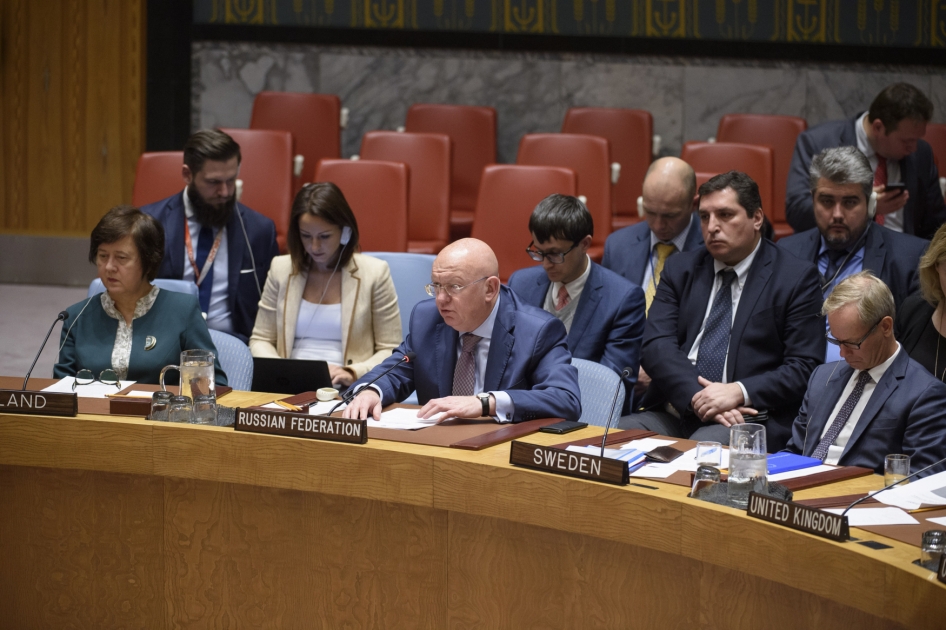Statement by Ambassador Vassily A. Nebenzia, Permanent Representative of the Russian Federation to the United Nations, at the Security Council meeting on Yemen
We thank the United Kingdom delegation for initiating today’s meeting.
The situation in Yemen merits the Security Council’s close attention. Mr. Lowcock has given us a depressing briefing on the situation in Yemen, where the world’s worst humanitarian crisis is unfolding. This is a structural crisis. It has done irreparable damage to the country’s economy and population.
The Emergency Relief Coordinator’s dry statistics cannot convey the full force of the critical situation in Yemen. A majority of the population is in need of one or another kind of assistance. Millions of Yemenis are starving and have no access to essential medical services or medicines. The country is once again in the grip of a cholera epidemic. Getting humanitarian aid to Yemenis should be one of our priorities and should be provided on a non-discriminatory basis, regardless of who controls the territory where they live. We call for a comprehensive cessation of the violence.
We condemn the indiscriminate strikes on civilian targets. We advocate ensuring unconditional compliance with the provisions of international humanitarian law and unfettered humanitarian access to all parts of the country. In order to achieve that, it will be essential to keep all of Yemen’s seaports, including Al-Hudaydah and Saleef, as well as its airports, including Sana’a, open and functioning. It is important to ensure that there are no obstacles to the unimpeded movement of humanitarian and commercial goods traffic along the main routes linking the coast with the north of the country, where a major part of the population lives.
Russia will continue to provide unpoliticized humanitarian assistance to Yemenis in both the north and south. We intend to continue working on a bilateral and multilateral basis, including through our regular contributions to the budget of the World Food Programme. We operate on the principled position that it is impossible to improve the situation in Yemen through humanitarian measures alone and that a political solution is essential. The Security Council cannot remain indifferent to the suffering of the Yemeni people and must work to influence the parties to the conflict, with the aim of achieving a rapid resumption of negotiations and agreeing on a ceasefire formula from which a sustainable political process can emerge.
We support the mediation efforts of Mr. Martin Griffiths, Special Envoy of the Secretary-General for Yemen, and believe that his initiative for launching the negotiation process is important. He continues to be in contact with all of the players involved through shuttle diplomacy. We are convinced that reaching agreement, particularly with regard to confidence-building measures, is still possible. We call on all parties to show restraint and refrain from resorting to force. The history of the conflict in Yemen has shown that militaristic approaches do not work. Maintaining calm around Al-Hudaydah and halting offensive actions should help Mr. Griffiths succeed.
For our part, we will continue to assist the Special Envoy through our contacts with all of the stakeholders in the conflict, encouraging them to become actively involved in the United Nations mediation efforts. In conclusion, we want to emphasize once again that whether we are talking about the Yemeni conflict or conflicts in other trouble spots in the region, these are all the result of the lack of a comprehensive and indivisible security architecture in the Middle East for both the Arab States in the Persian Gulf and Iran.
Russia has long advocated for an initiative establishing that architecture, which would enable us to exchange the current climate of threats and confrontation for one of dialogue and cooperation.
